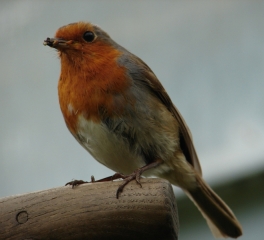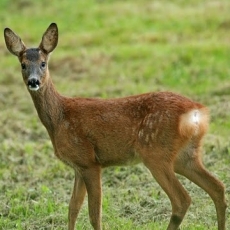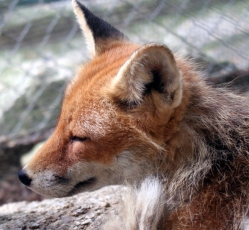By Keith Marley.
It’s that time of year again. People are out in their gardens and enjoying the countryside.
As a result the phones are busy here at The New Arc, mainly offering advice for people on what to do and not to do when contact is made with young animals or animals which turn up in unexpected places.
So we thought it might be useful to offer a few tips.
1) Baby deer, hares and owls are often found while out walking. Please do NOT pick them up. It often appears that they are ‘abandoned’ because they make no attempt to run or fly away and because there is no sign of mum in the immediate area, but we can assure you that the mums of fawns, leverets and owlets do not stay in constant touch with their youngsters, returning maybe only every few hours or at night time to feed and care for them.
Mum will know exactly where they are and even if they stray a little while she was away will easily be found with a quick call to them.
2) Young deer, badgers and foxes can often turn up in unexpected places such as stables, yards, outbuildings and gardens even in the busiest of places. These are usually last year’s youngsters who are now searching out new territories because of mums new arrivals.
As a result they travel around late at night/early morning and settle down in what appears to be a secluded spot only to find that there is an explosion of activity from 7.30 onwards as we all prepare to go to work, school etc. This usually results in them rushing about in a panic until the activity dies down.
The usual scenario is that they will find a quiet spot and hunker down for the rest of the day and move on again when nightfall occurs. Of course accidents can happen… garden netting, busy roads, dogs etc. In which case we are more than happy to assist, but the usual rule is back away, give them some space and let them sort it out themselves.
3) As we said, accidents do happen especially on country roads or ‘out of the way’ places. If you do happen to come across a situation where you are concerned or there is an obvious injury then we advise that you make some attempt to mark the spot with some visible means.
For instance, if you come across a RTA (road traffic accident) then perhaps tie an old carrier bag or something obvious to a fence or tree perhaps 20 or 30 feet from the victim and call us giving as much detail as possible (Trust me we spend a lot of time scouring roadsides on some remote 3 mile stretch of back road).
The same advice can apply if you come across an ‘orphaned’ deer etc.
Leave an obvious visual sign some 20/30 feet away and return a few hours later to check.
4) Fledgling birds will often turn up in gardens and back yards seemingly alone and abandoned. Often the birds can flutter around but are unable to fly. If the bird is feathered and approximately the size of the adult bird then it is best to back off and leave them to it unless they are under direct threat from a predator or in a dangerous location.
If you have ever seen a blackbirds nest, the reason for this is quite obvious… it simply isn’t big enough to hold 5 or 6 nearly adult sized birds and because they are almost fully feathered they do not need an adult bird sitting on them to keep them warm, so they leave the nest and distribute themselves around the local area usually in nearby shrubbery.
This gives the advantage that should a predator find one of them, it is only one instead of that whole year’s brood.
It also gives the youngsters the chance to learn the skills required to find their own food while waiting for their parents to return with the next meal. If the bird is in the open then ‘mum’ will usually return to the location and call the youngster from nearby cover, encouraging it to come get a meal and also to return it to a safe hiding place.
It’s easy to think that if you back off and watch from a window or doorway that you will see if an adult bird comes to feed it, but we can assure you that there is a far better chance that they will see you before you see them and will not approach the youngster for fear of bringing attention to it.
You may even leave the area to return and check it an hour later, but the chances are the youngster will still be there because it has had no particular reason to move on.
Every year The New Arc has animals and birds handed in to the centre which should have been left exactly where they were. However we may appreciate that sometimes people have to make a ‘judgment call’, we would rather they erred on the side of caution than didn’t bother at all. The best advice we can give is ‘if in doubt, leave it be and check it out’.
We are more than happy to give advice or even visit a location to assess the situation ourselves. If necessary we can advise you of other individuals or organisations who may be better placed to
help.
The New Arc does not refuse any form of wildlife, but we have to admit that we cannot be in several places at the same time, so we do ask the public to assist us as much as possible by taking animals to the centre if possible, however, we do insist that the public do not endanger themselves (or the animals concerned) in doing so.
We have a network of individuals who assist us in picking up and transporting animals to us. The phones are manned 24 hours a day and if there is no immediate answer leave a message as we are probably only busy on another call.
Telephone 0796 2253867 – stick it in your mobile phone… just in case. But please do not e-mail us about injured birds or animals. We do not sit in front of our computers all day and only check our mail when we have a chance.


